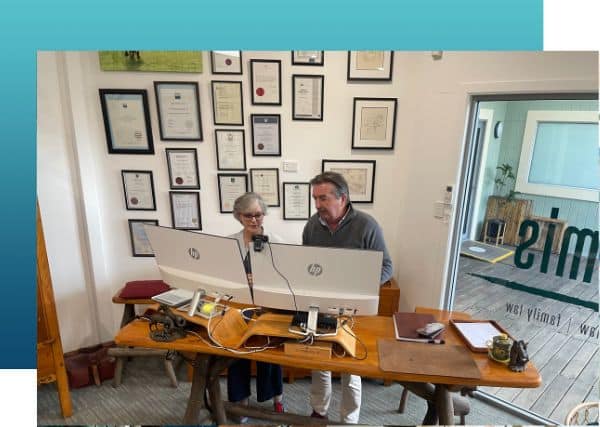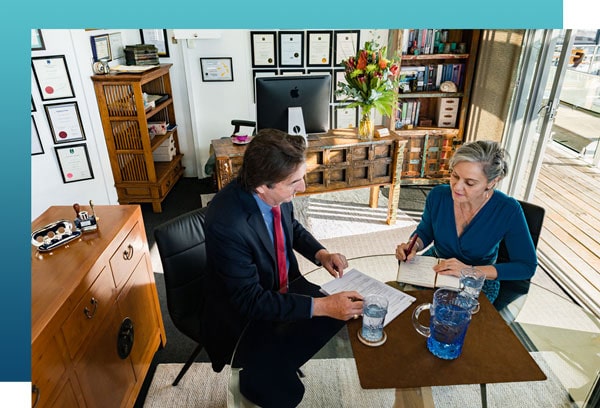A Domestic Violence Order (DVO) is a legal order made to protect someone from violence, abuse, or harassment. DVOs can be made against anyone, including family members and partners.
If you are the victim of violence or abuse, it is important to know your rights and how to get an DVO. In this blog post, we will explain what DVOs are and how they can help protect you from harm.
How to get an DVO in Queensland?
If you are the victim of violence or abuse, you can apply for an DVO through your local police station. You will need to provide the police with evidence of the violence or abuse, such as medical reports, photos, or witness statements. The police will then investigate the matter and decide whether to issue an DVO. If they do issue an DVO, it will be served on the offender, and they will be required to appear in court.
What are the conditions of an DVO?
An DVO can contain several different conditions, such as:
- The offender must not approach or contact the victim
- The offender must not go within a certain distance of the victim’s home or work
- The offender must not use violence or threaten to use violence against the victim
- The offender must not damage the victim’s property
Additional orders can be requested depending on the circumstances of the DVO which will place additional restrictions against the defendant.
Can my children and loved ones be protected on my DVO?
Yes. If your children, family, or others associated with you have been affected by domestic and family violence or exposed to it, you can ask the court to add them to your DVO. Any conditions that the court orders to protect you, will protect them too.

Want to learn more about how to apply for an DVO?
Our experienced Family Lawyers can help you understand your options and your rights regarding an DVO to help protect you and your family from more harm.
What happens when I go to court to apply for a DVO?
The court session will be a closed court. This means that only you, the person who committed the violence against you ‘the respondent’, your lawyers and, usually, the prosecutor will be in attendance.
While the respondent, will be in court, as a ‘protected witness’ the court must consider options so that you feel safe in court. For example, a screen can be positioned so that you cannot see the respondent, or you may be able to speak from another room by video link.
If you are worried about your safety when you are arriving at court, attending court or leaving court then before you go to court, you can fill out a domestic and family violence safety form. A registrar will share the information you provide with court staff, security officers and the domestic violence protection worker who will make sure that you are safe and that you have access to safe rooms.
How long does an DVO last?
An DVO lasts for a specific period of time, usually five years, unless reasons can be provided as to why the period should be shorter. However, The order can be renewed if the victim is still at risk of violence or abuse. Remember an DVO is there to help keep you safe from harm and give you peace of mind.
We offer a wide range of Family Law services
If you’re looking for a family lawyer on the Sunshine Coast, check out our family law page to learn more about our services.
How to find out if someone has an DVO?
If you are unclear whether an DVO is in force against you, you can contact the Courthouse or the police to find out. When an DVO is made, if you are not attending court, then a police officer will give you a copy of the order.
If a temporary protection order or a protection order is served on you, it is very important that you comply with all the conditions on the order. If you choose not to follow the order, you are committing a criminal offence and you may face criminal charges.
If you are considering applying for an DVO, or if you have been served with an DVO, it is important to seek legal advice. A lawyer can help you understand your rights and obligations under the DVO and represent you in court.
Contesting a will can be a complex and costly process. It is important to seek legal advice before taking any action.
How much does an DVO cost?
There is no fee to apply for an DVO. However, you may be required to pay a court fee if the matter goes to court. You may also be eligible for legal assistance through Legal Aid.
How To Get A Divorce In Australia
If you’re married to the offender of your DVO and you wish to divorce them, proper advice and insight into how to get a divorce in Australia can help make your application easier. Our How You Can Get Your Divorce In Australia Guide covers everything you need to know about applying for divorce, broken down into practical, simple sections for you to follow. Read on now for all the details necessary to complete your divorce application:
.
What is considered a breach of an DVO?
There are several different things that could be considered a breach of an DVO, such as:
- Damaging the victim’s property
- Approaching or contacting the victim
- Going within a certain distance of the victim’s home or work
- Using violence or threatening to use violence against the victim
A breach of an DVO is a criminal offence. The penalties for breaching an DVO can include a fine, imprisonment or both. If you are convicted of breaching an DVO, you will also have a criminal record.
Can an DVO be removed or changed?
Yes. An DVO can be removed or changed by a court. The offender can apply to have the DVO removed or varied, and the victim can also apply to have the DVO removed or varied.
Do you need help?
If you are a victim of violence or abuse, there are several services that can provide you with support, including:
- Your local police
- Legal Aid
- Safe at Home
- Victims Services
- DVConnect Womensline
- DVConnect Mensline
If you are considering applying for a DVO or if you have been served with a DVO, it is important to seek legal advice. A family lawyer can help you understand your rights and obligations under the DVO and represent you in court. Contact either Nadine Love or Dr John Cronin today on 07 5455 6347 to schedule your initial complimentary consultation.

Nadine Love is a lawyer and part of “the dream team” at Anumis Legal. She completed her law degree at Southern Cross University and received the New South Wales Bar Association Prize for Evidence and Civil Litigation. In addition to her passion for family law and therapeutic jurisprudence Nadine is also a celebrated international author, personal & business coach, drama therapist and motivational mentor. Nadine’s interests encompass swimming and walking in the rainforest with golden retriever Anu, and Australian Shepherds, Lex, and Onyx. She combines her strengths of advocacy, empathy and out-of-the box problem solving to support her clients to achieve their best legal outcomes.


